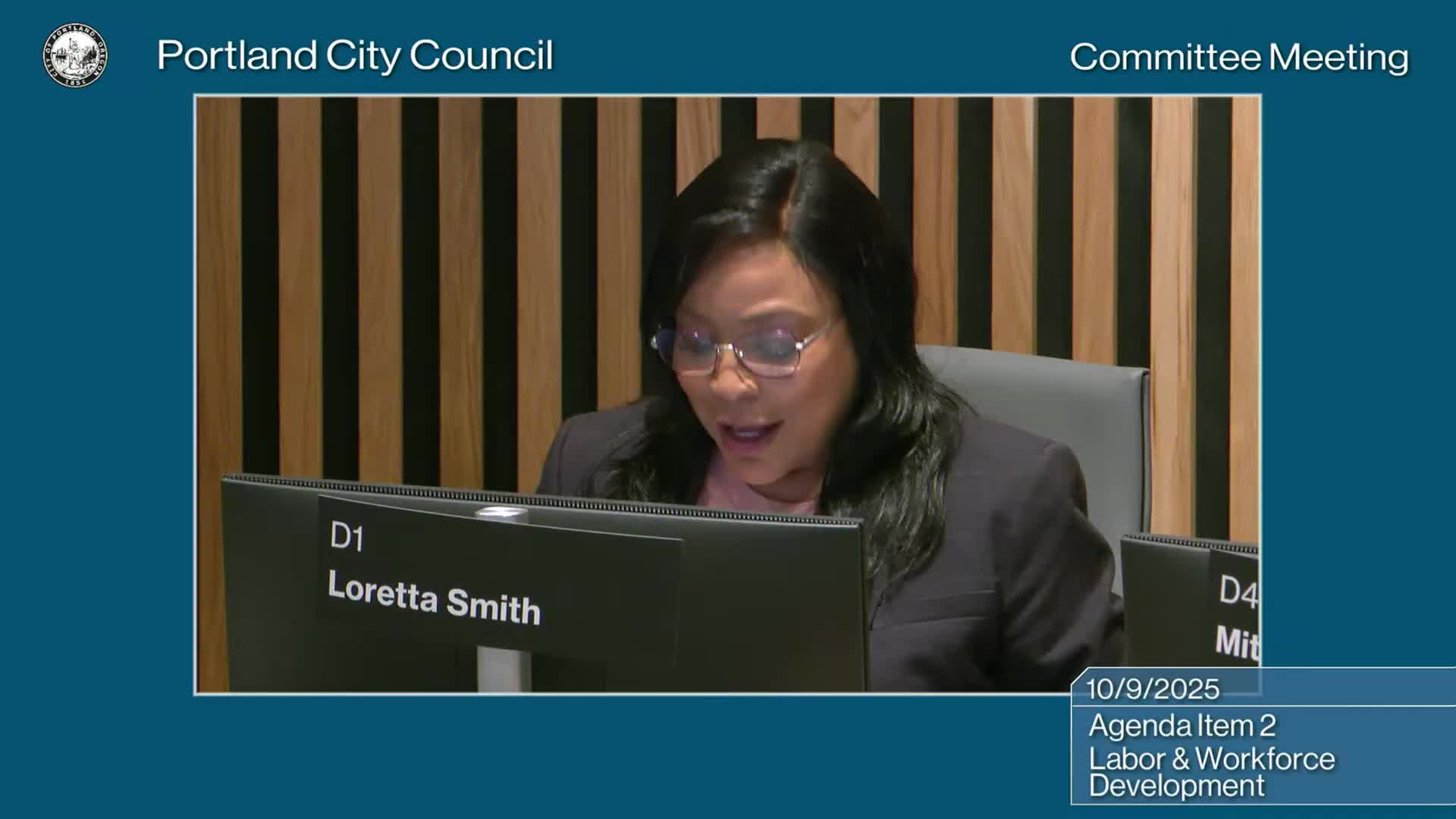Carpenters tell Portland committee cash pay, falsified payroll and multi‑tier subcontracting drive wage theft on local projects
Get AI-powered insights, summaries, and transcripts
Subscribe
Summary
Carpenters and union organizers described withheld pay, misclassification, falsified certified payroll and multi‑tier labor brokering on Portland construction projects, and urged transparency rules and stronger enforcement.
Carpenters and union organizers told the Labor and Workforce Development Committee on Thursday that wage theft on construction projects in Portland ranges from misclassification and falsified certified payroll to cash payments and multi‑tier labor brokering.
Trampus Simmons, representing the Western States Regional Council of Carpenters, described cases where workers on prevailing‑wage projects were paid at lower classifications or omitted entirely from certified payroll records. "If you're gonna cheat workers and make money, Oregon is the place to come, currently," Simmons said.
Jesus Auceda, an organizer for the Western States Carpenters Union, provided project examples he said involved public and private funding and ongoing unpaid claims. "These projects were built with public and private dollars and they show exactly why stronger enforcement is needed," Auceda said; he named the Julia West project, Buckley luxury condos and a residential project with a worker still owed more than $40,000.
What was described: Witnesses detailed several recurring practices—classifying journeymen as lower‑paid laborers to pocket the wage differential on prevailing‑wage jobs; falsifying certified payroll records so several on‑site workers do not appear in reports; paying overtime in cash or not paying it at all; and chains of labor brokers that add layers of subcontracting and permit kickbacks of 10–12% of a paycheck.
Advocates described one enforcement tool already on the books: a contractor bond administered by the Construction Contractors Board (CCB). "We have such a bond through the state... however the one through the state is $3,000 total per project," Simmons said, adding that the size of the bond limits its usefulness for large claims.
Council members discussed next steps: pursuing a local transparency ordinance tied to city procurement, coordinating with Multnomah County and other Oregon cities considering similar rules, and conducting site visits so elected officials can see conditions firsthand. Several councilors requested follow‑up research and legal review of draft procurement and transparency language to ensure it does not conflict with state law.
No vote or ordinance was adopted. Committee members asked advocates to continue working with staff on feasible enforcement and procurement changes and to provide specific certified‑payroll examples and records to help staff and auditors assess city levers.
